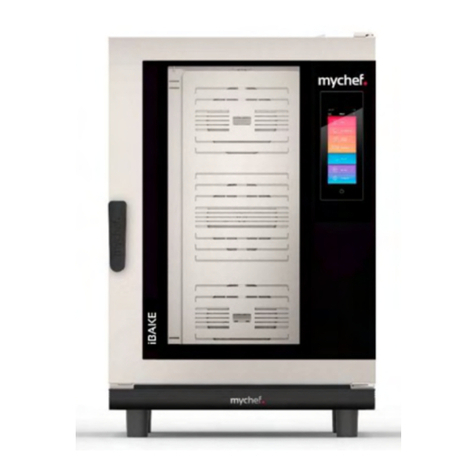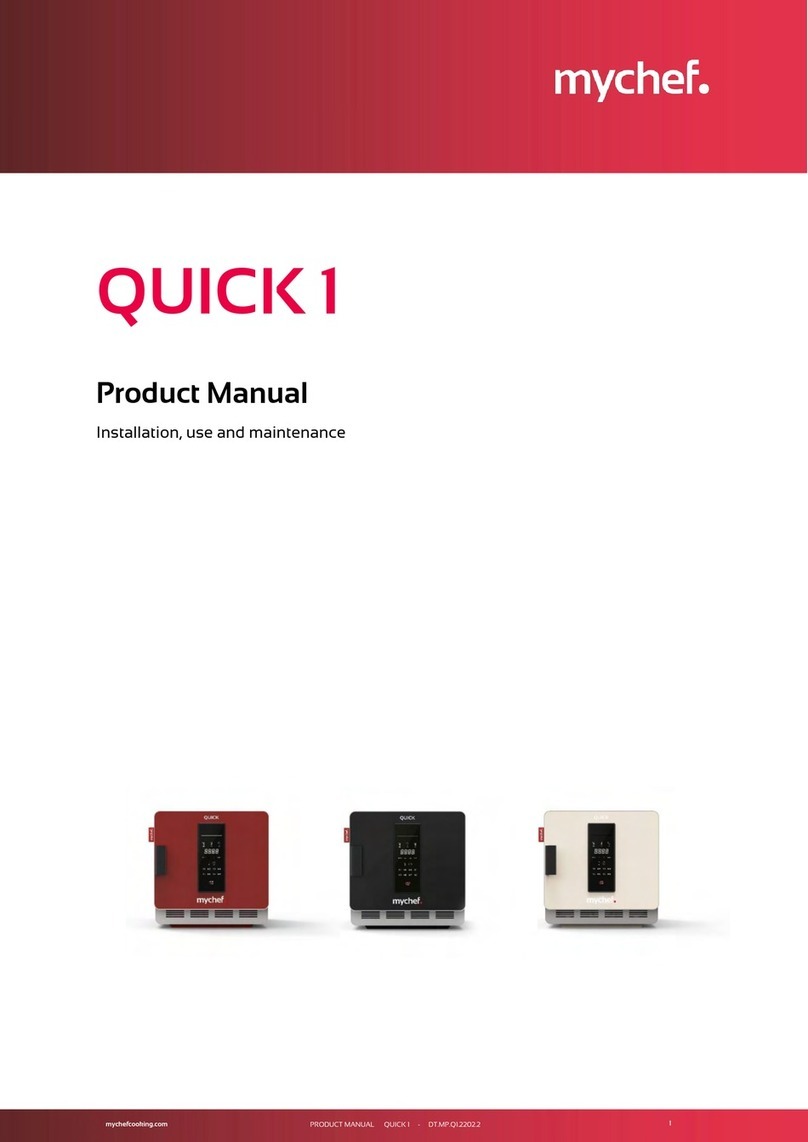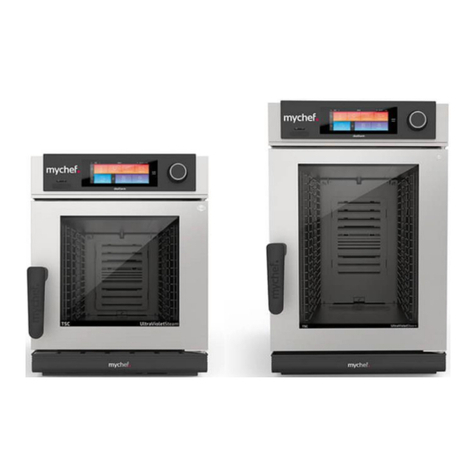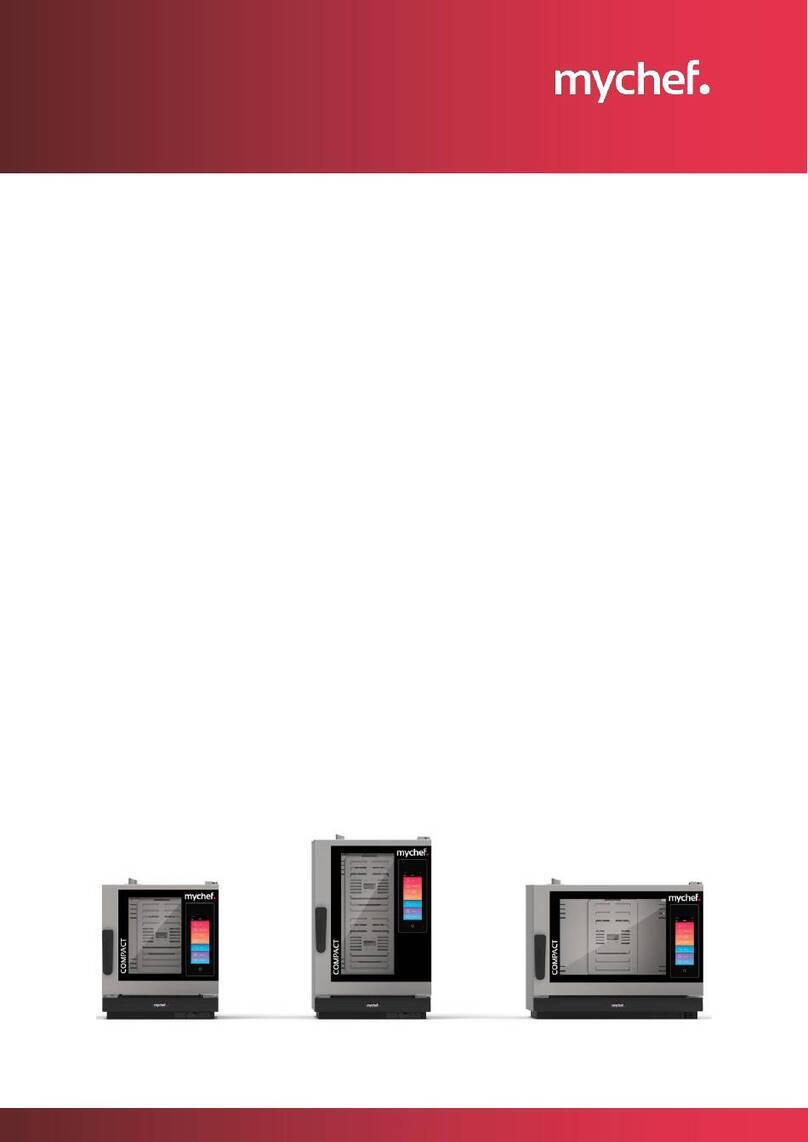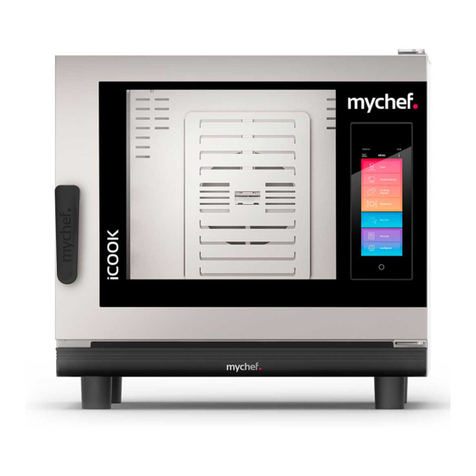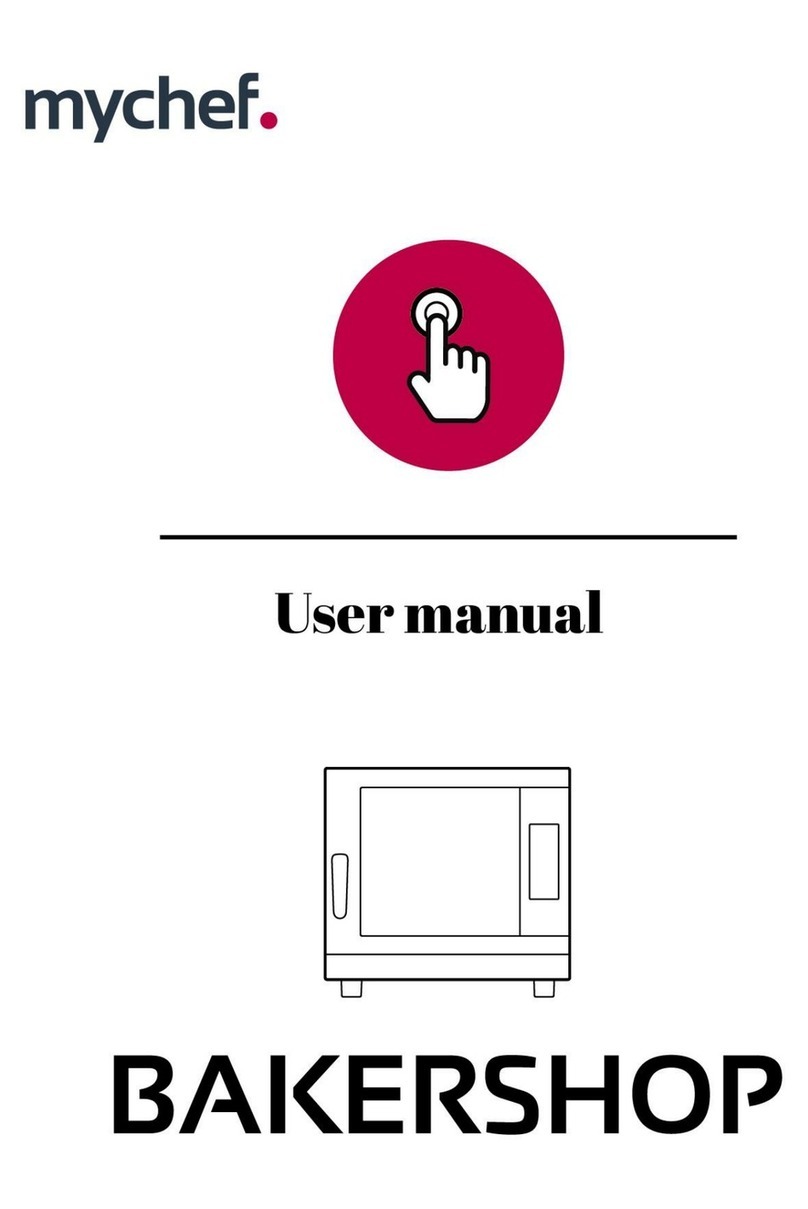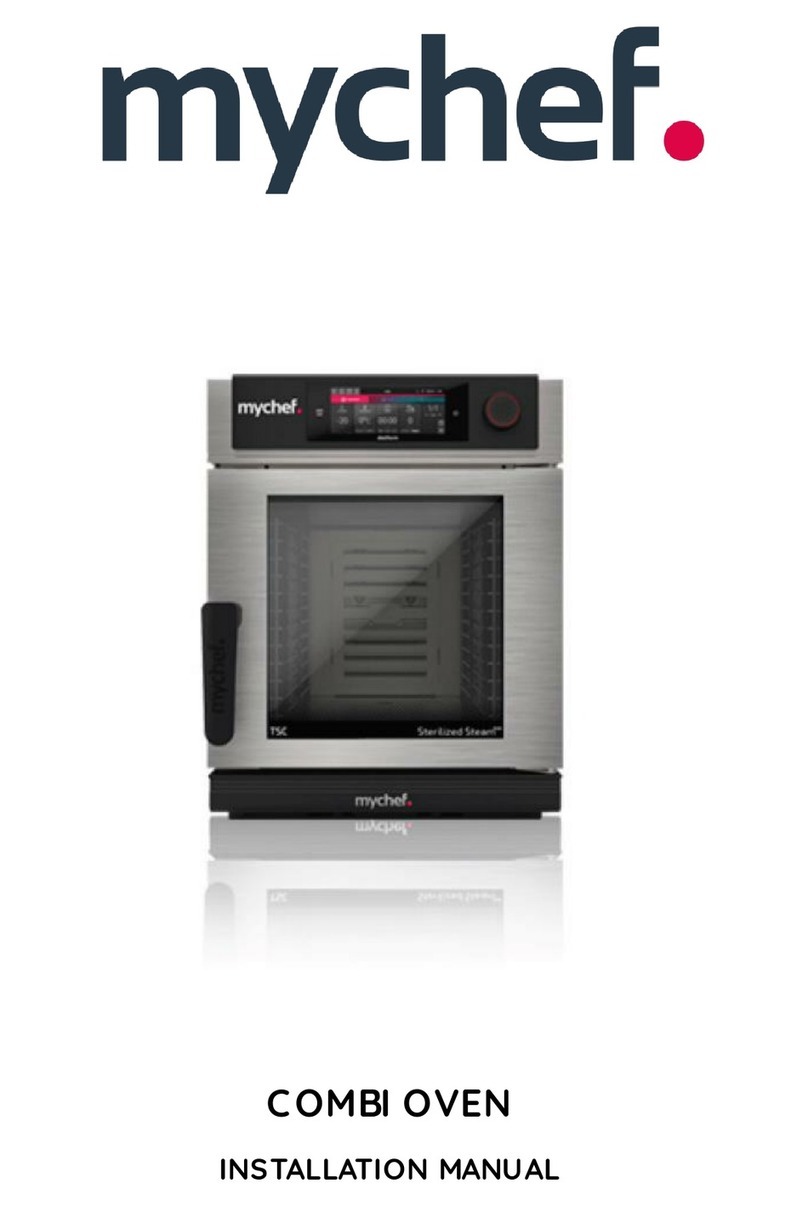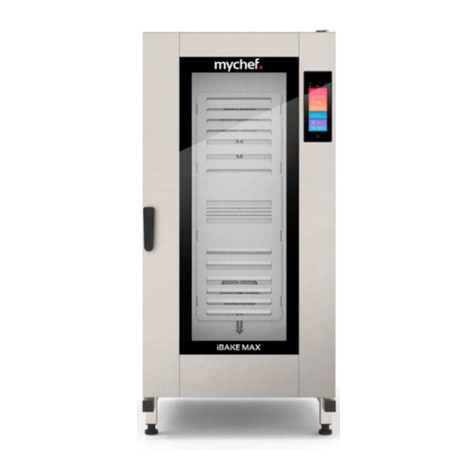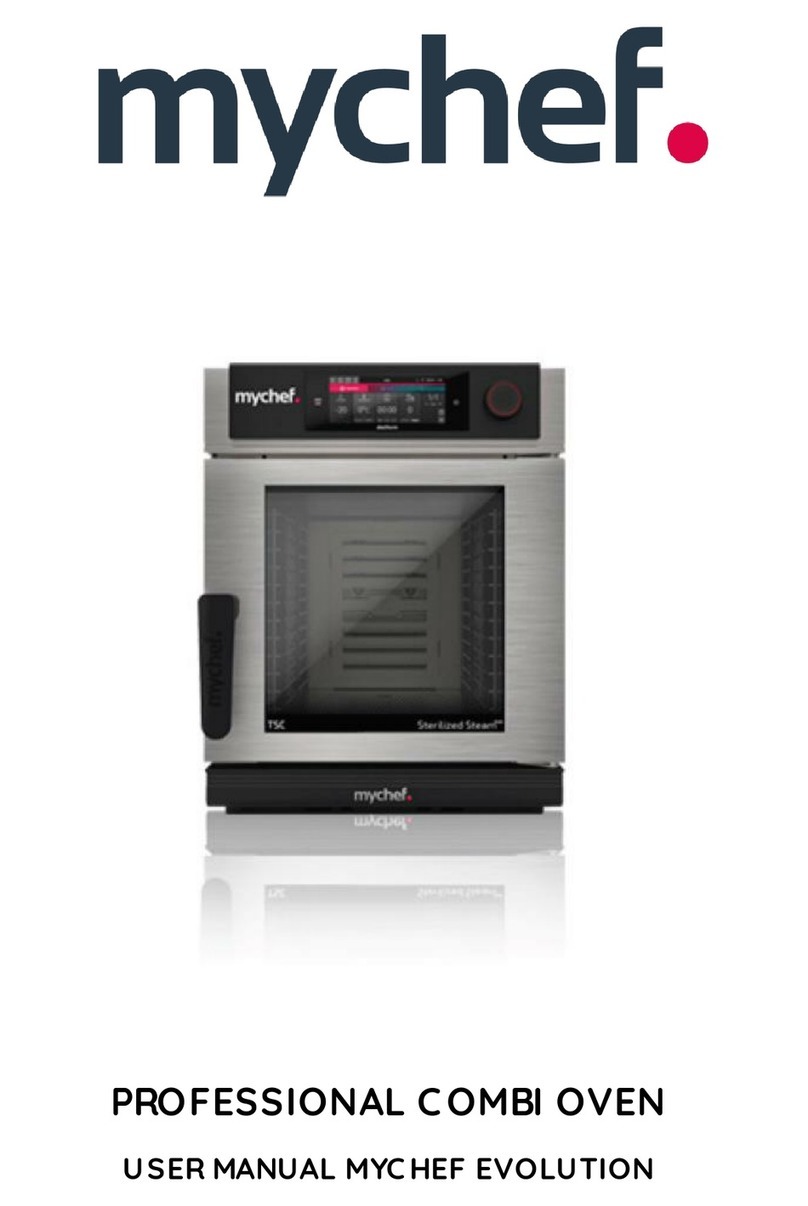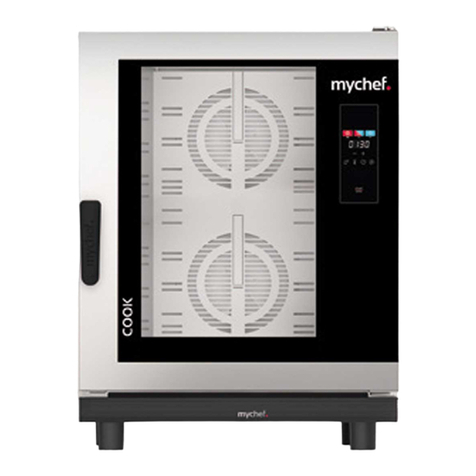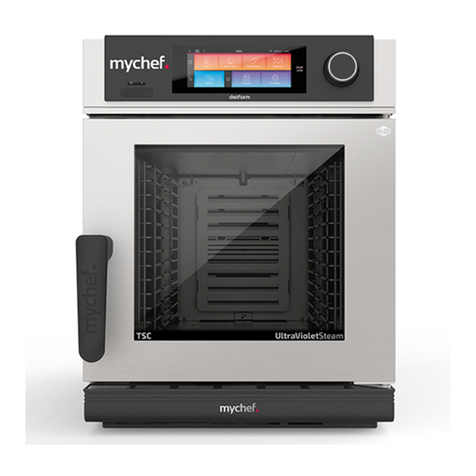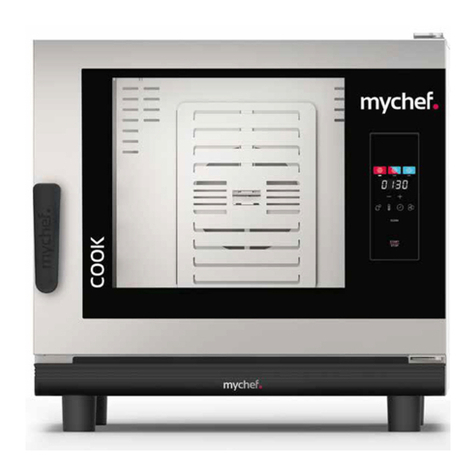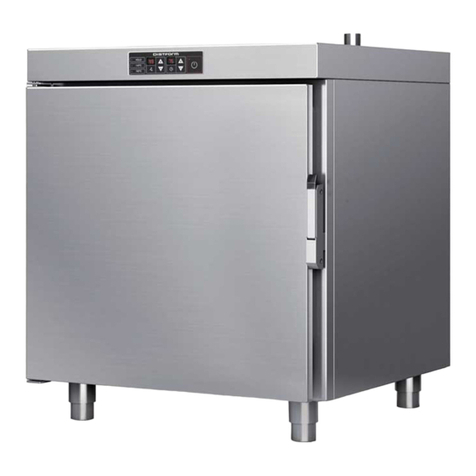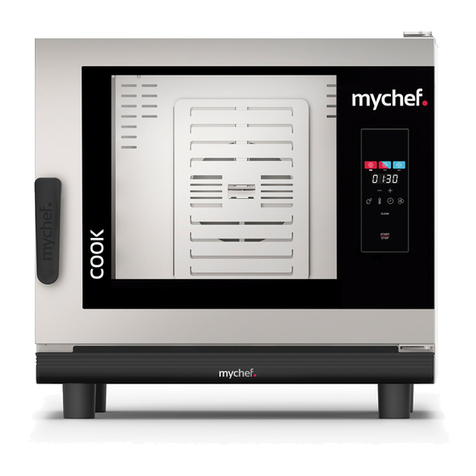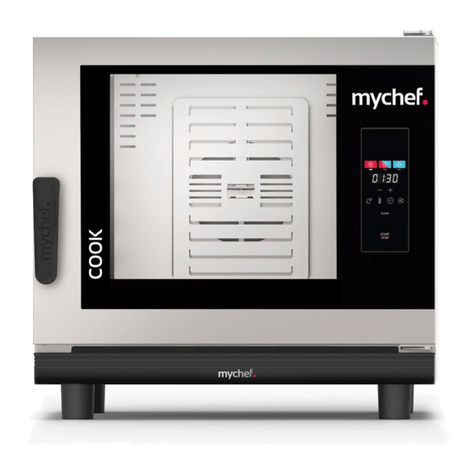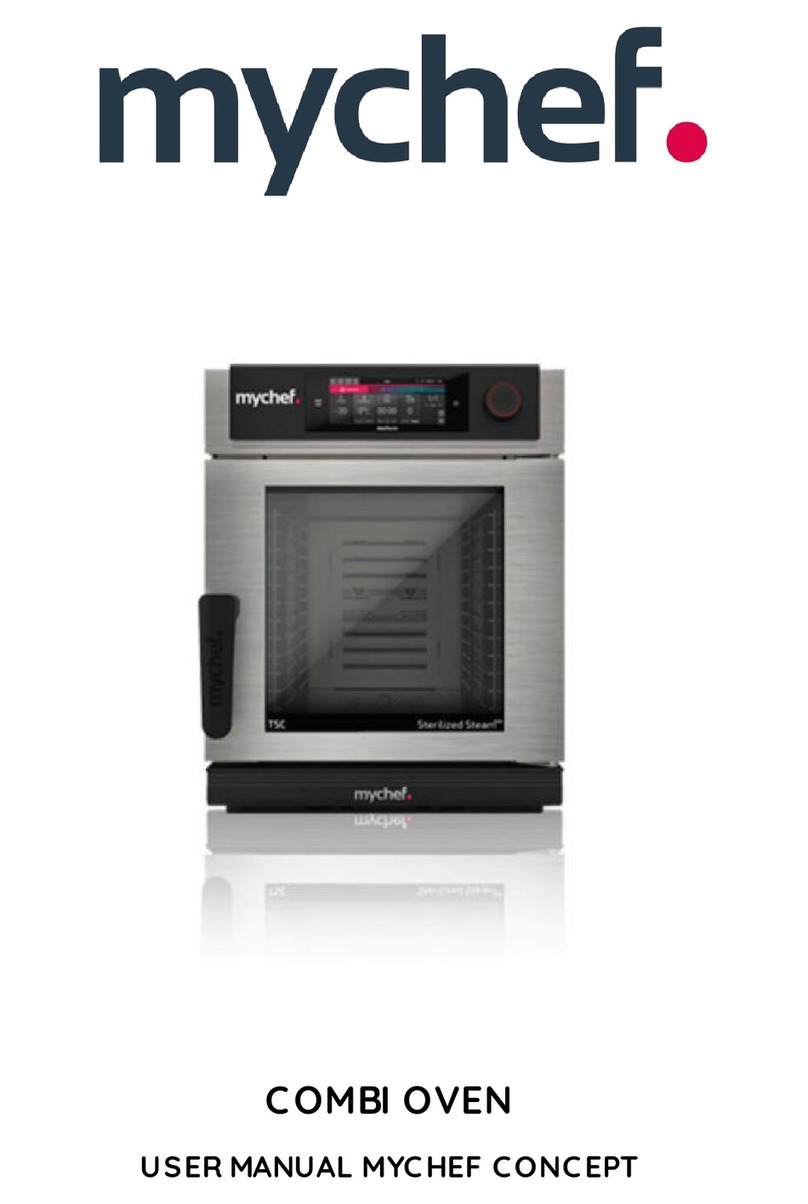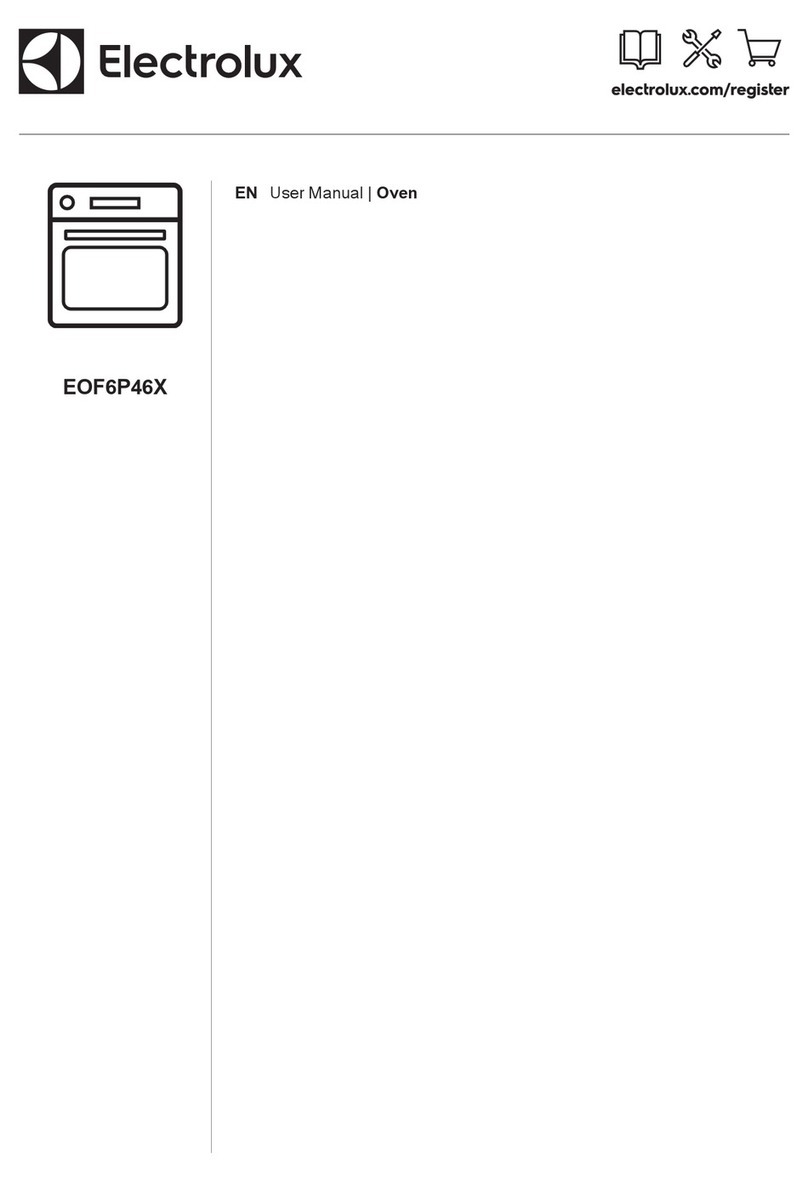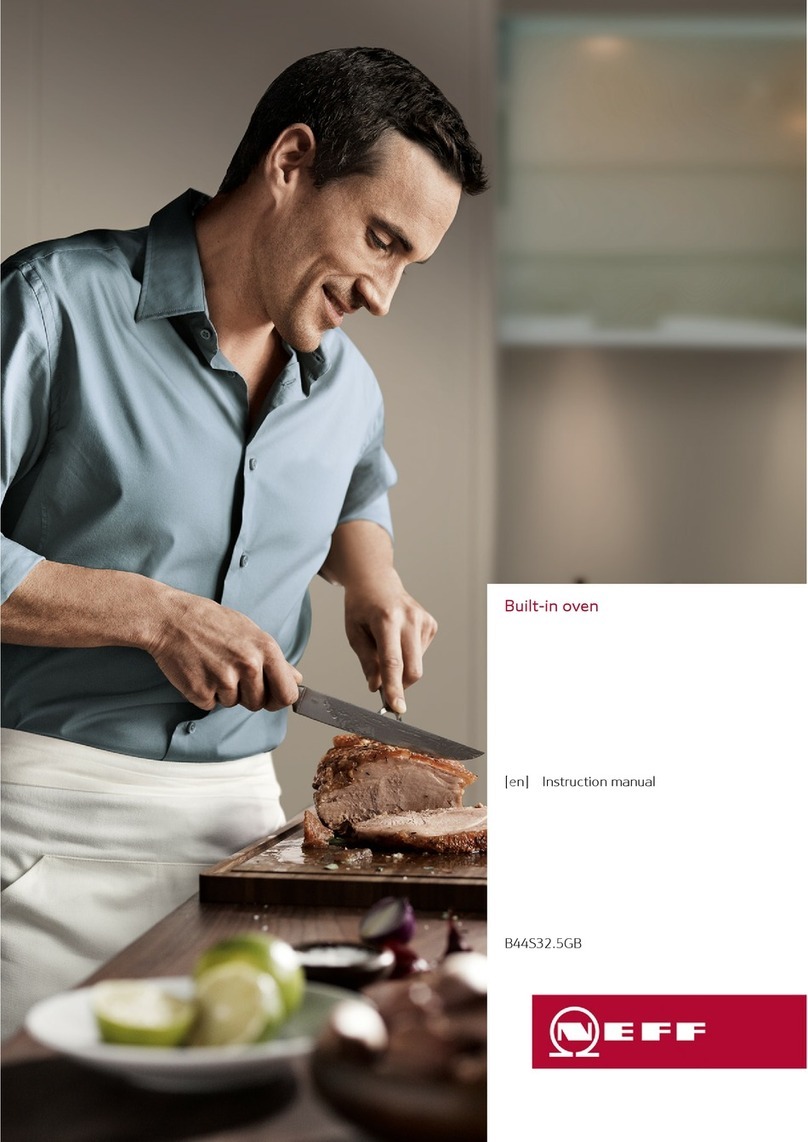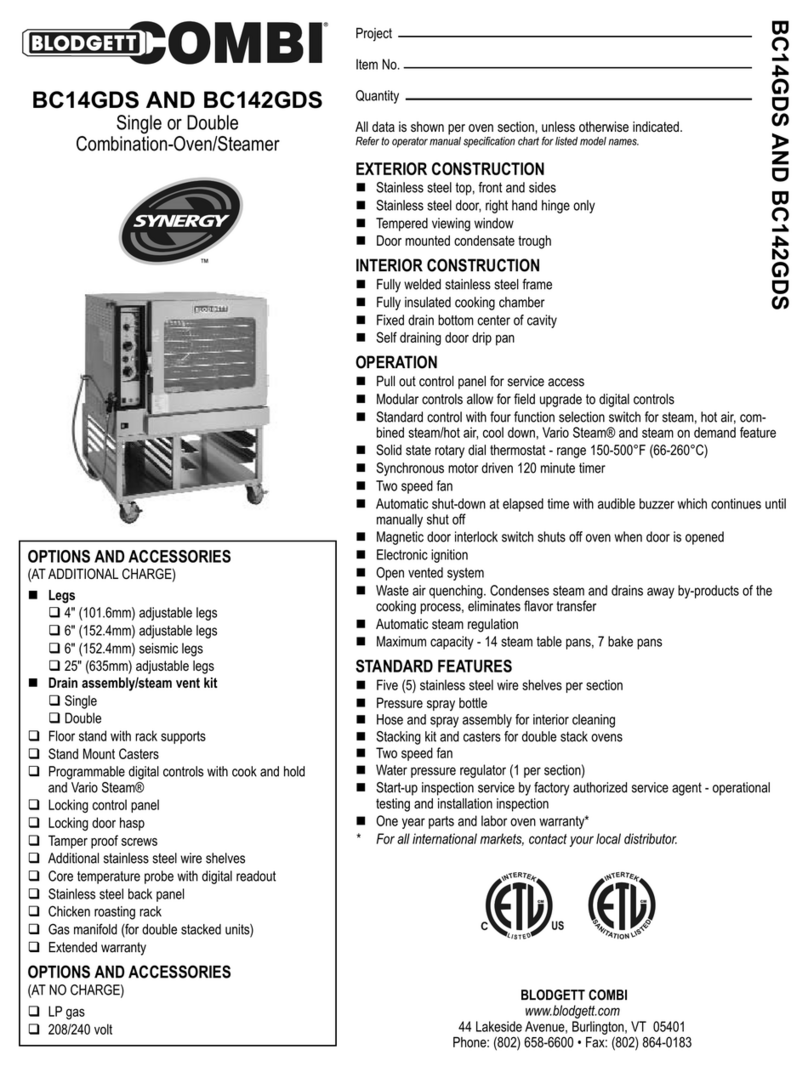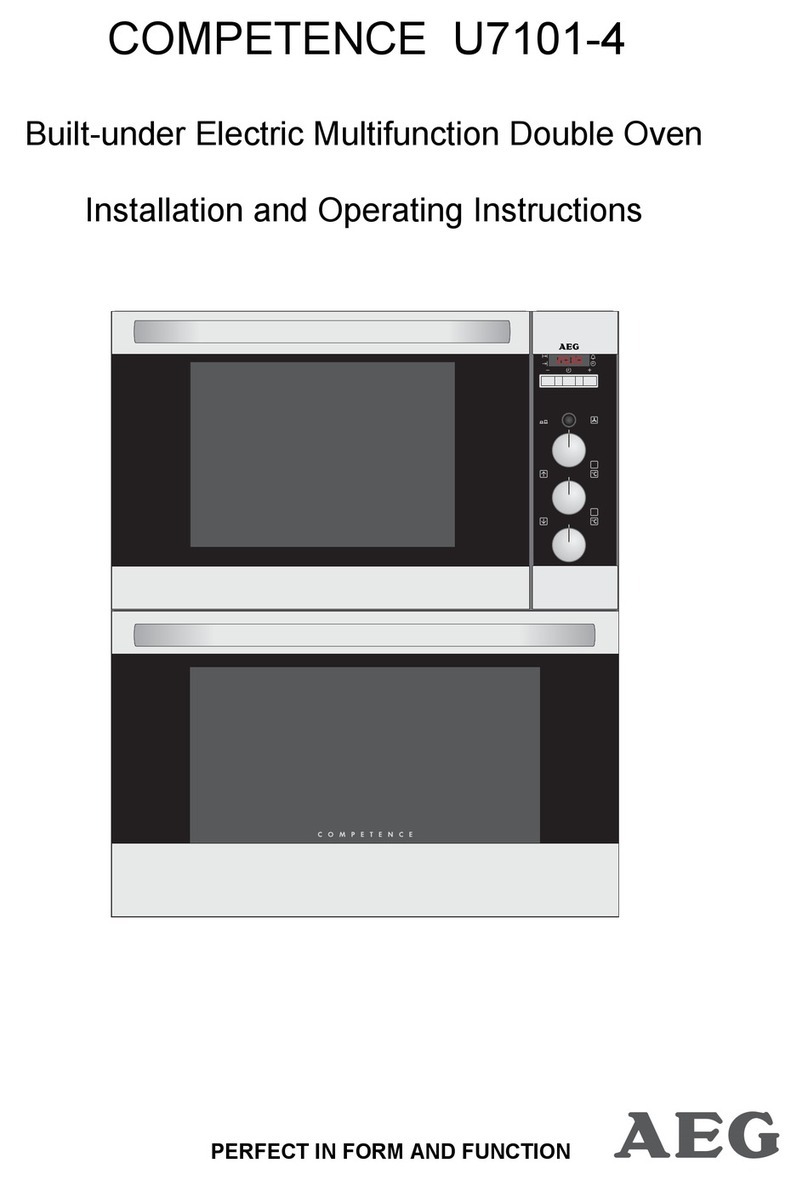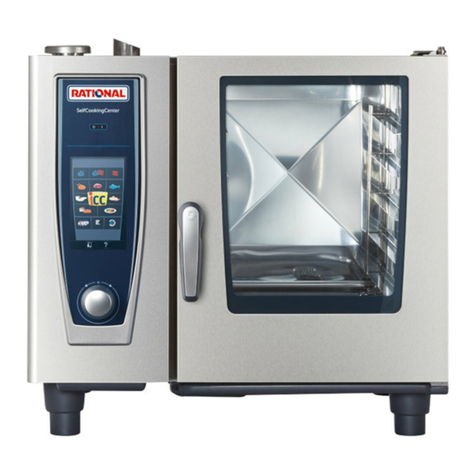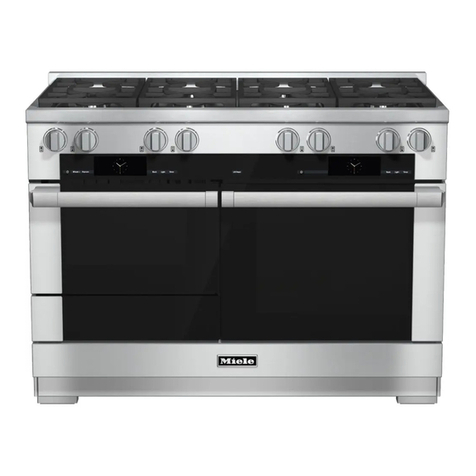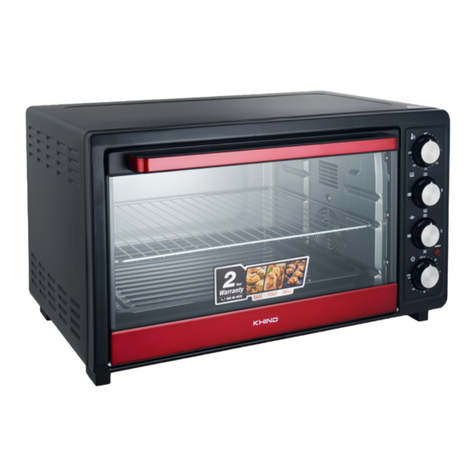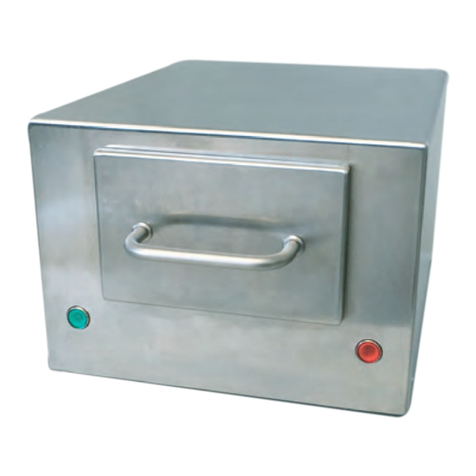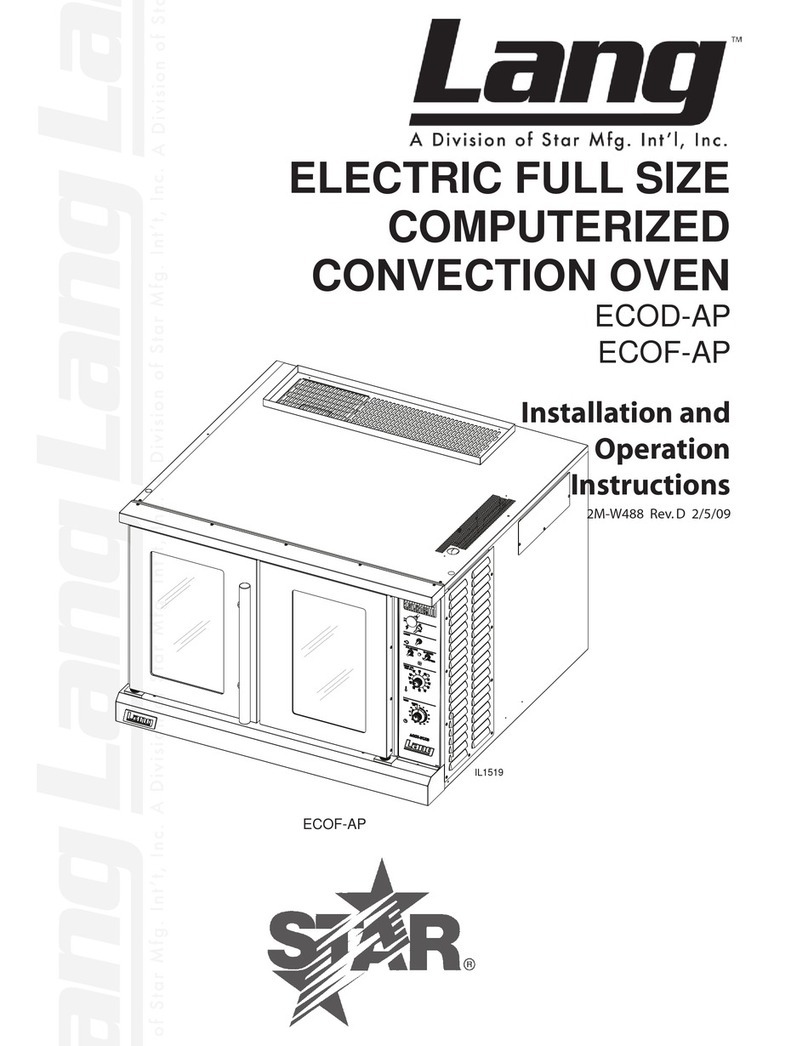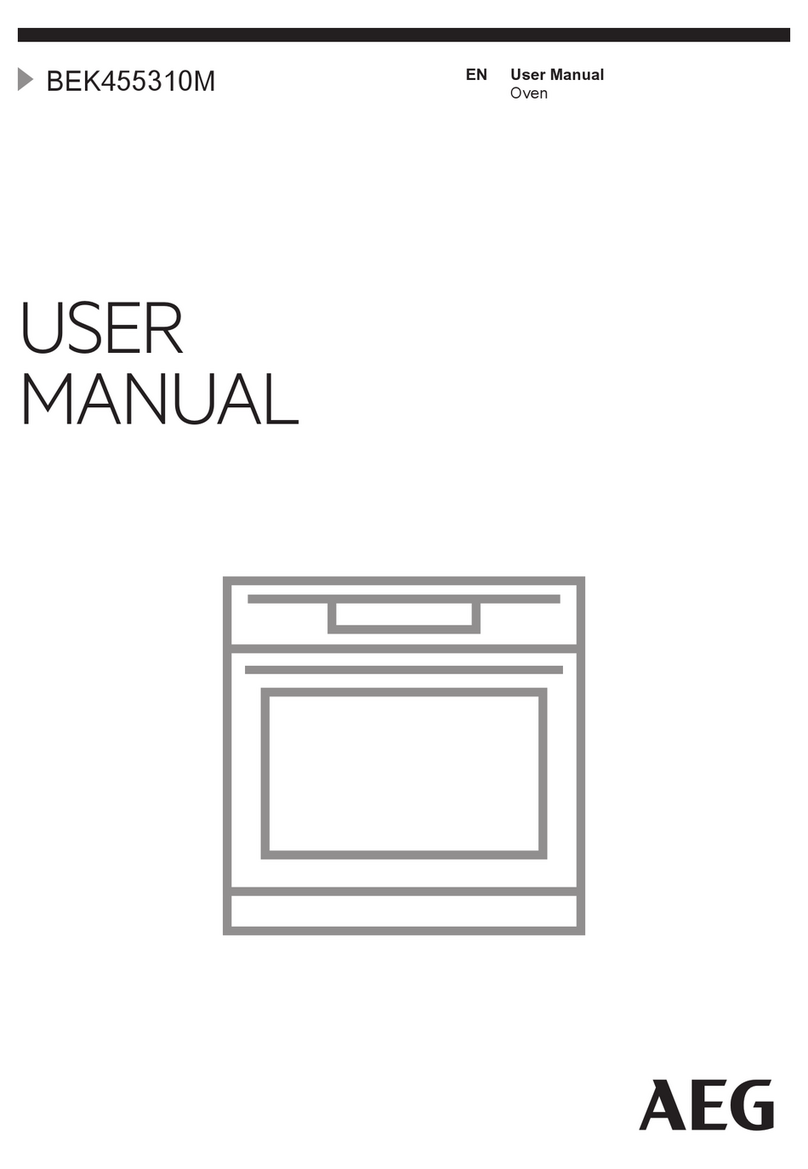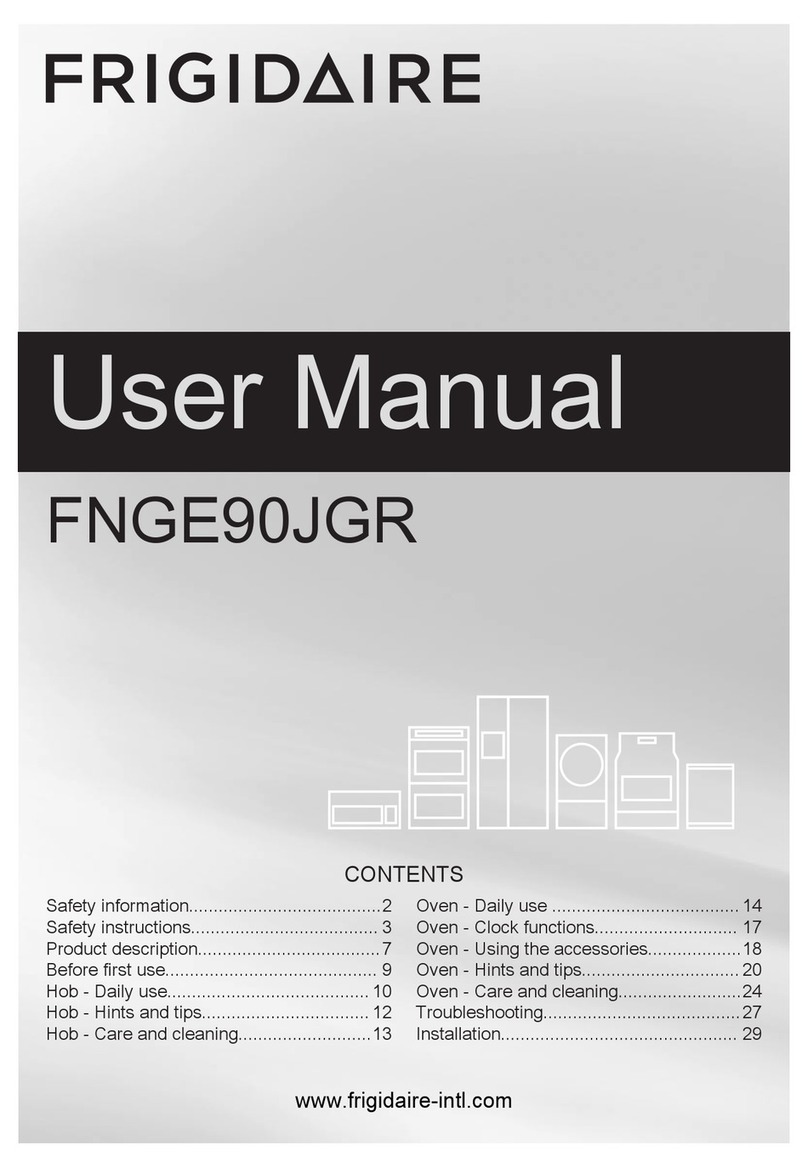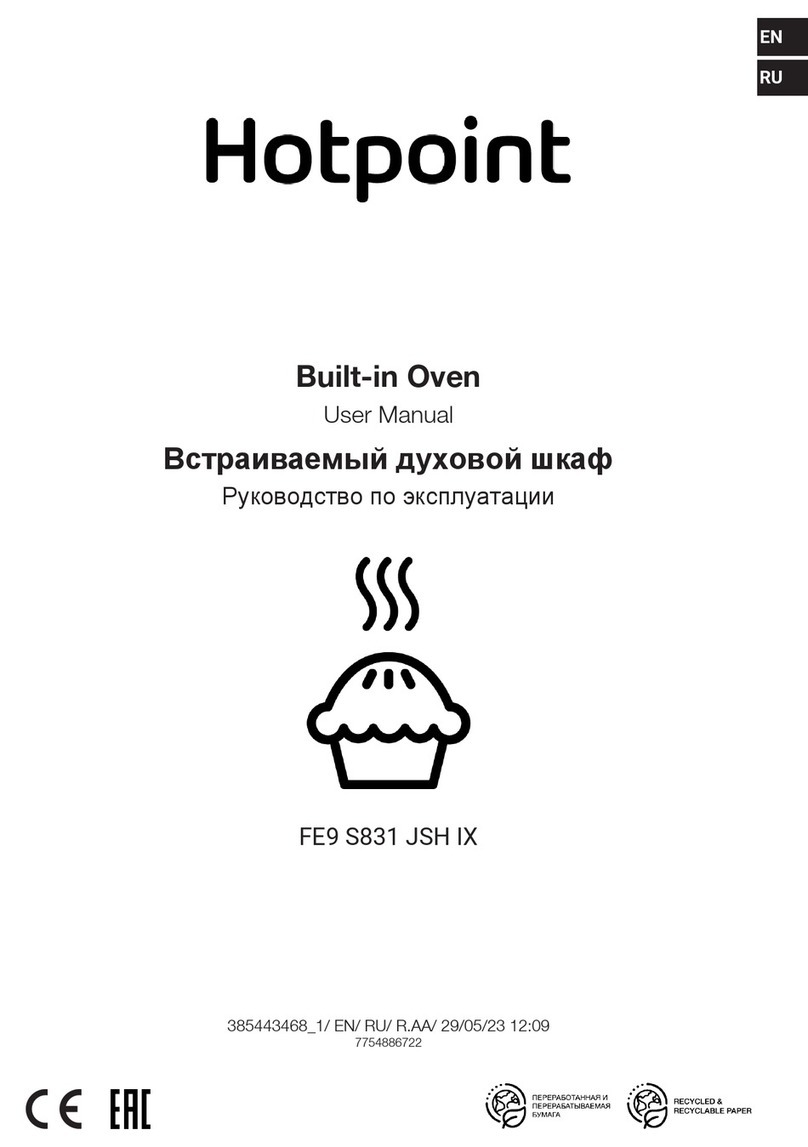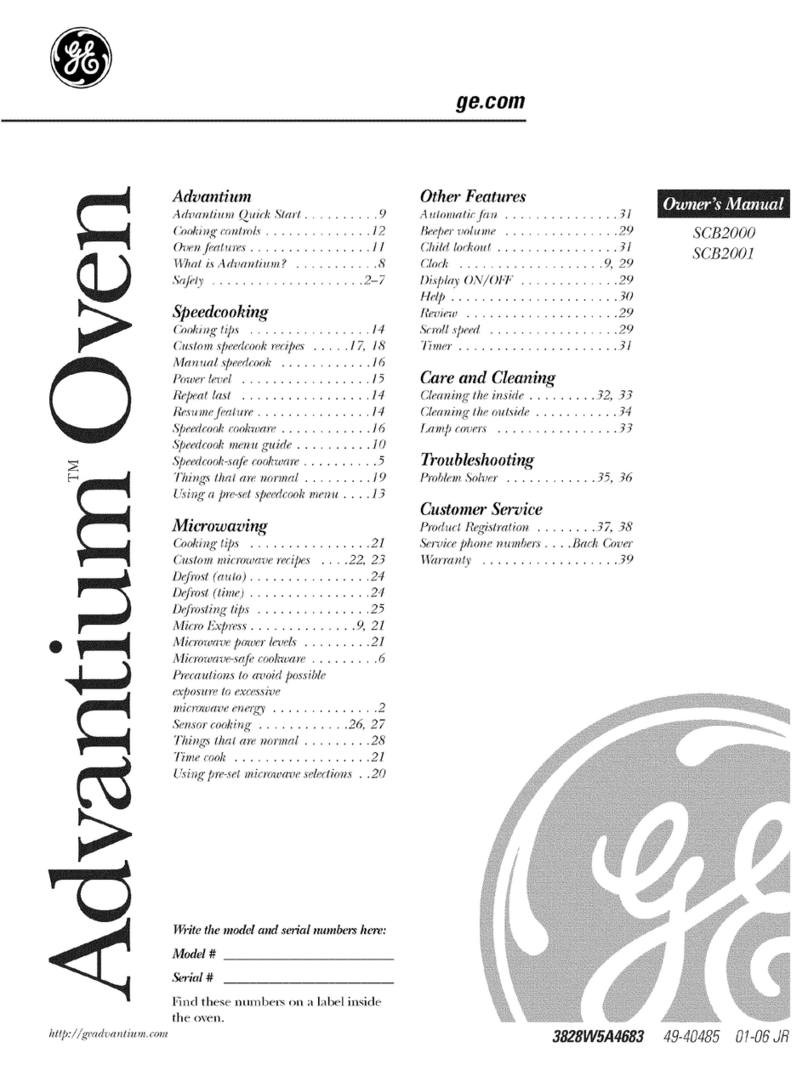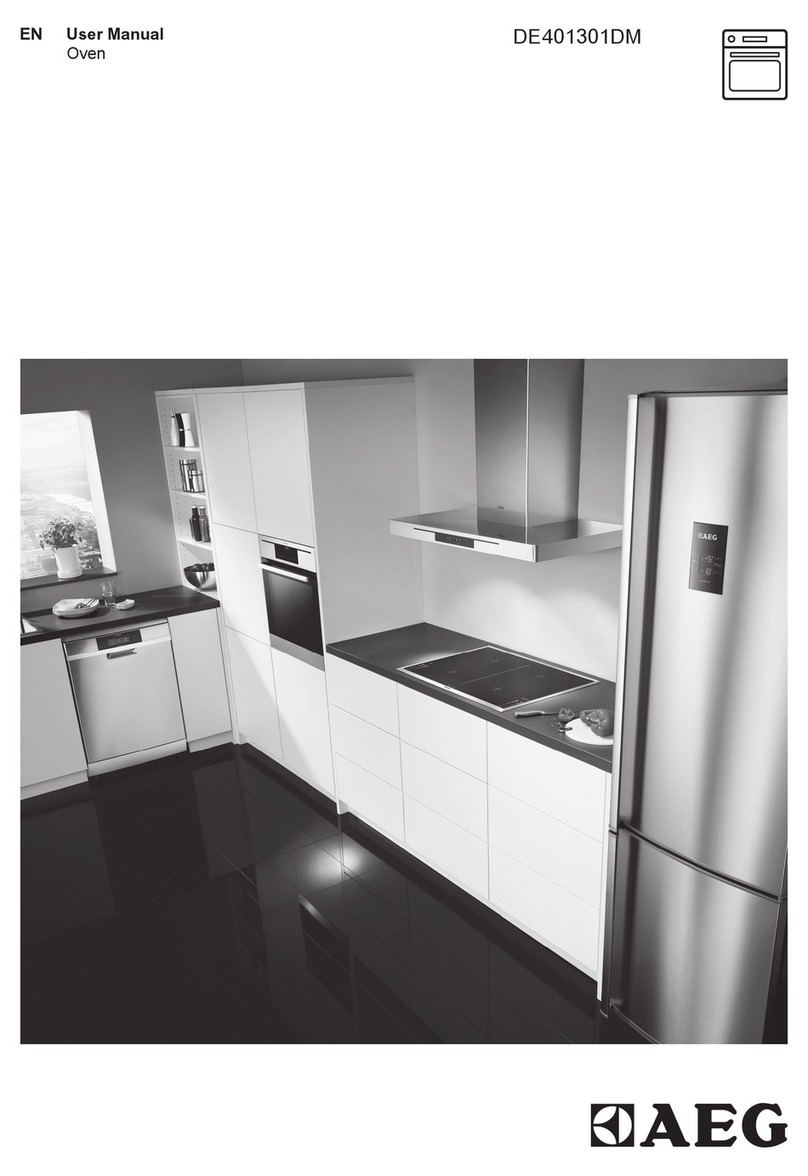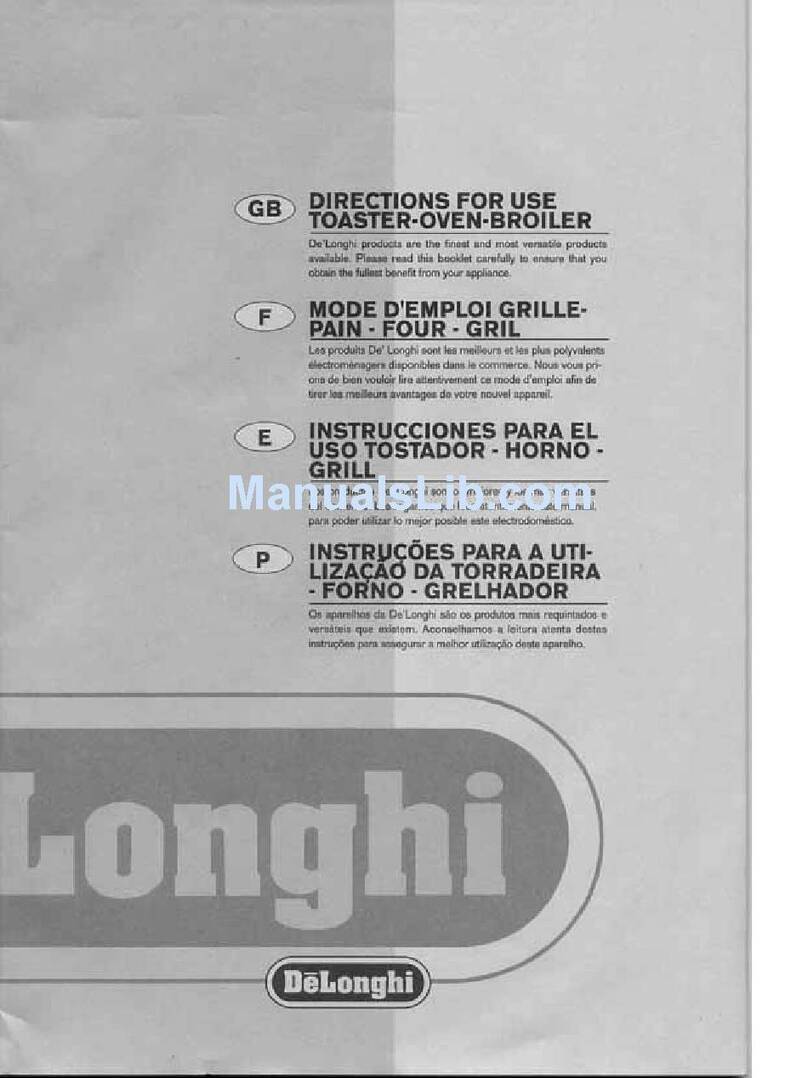INDEX
1. INTRODUCTION...........................................................................................4
2. TECHNICAL CHARACTERISTICS ...................................................................5
2.1. Main characteristics Mychef Bakershop ............................................................. 5
3. GENERAL SAFETY AND ACCIDENT PREVENTION REGULATIONS ....................6
3.1. Personnel responsible for using the equipment............................................... 6
3.2. Electrical hazard .................................................................................................... 6
3.3. Thermal hazard...................................................................................................... 6
3.4. Corrosion hazard .................................................................................................. 7
4. RECEPTION, TRANSPORT AND POSITIONING.............................................8
4.1. Reception............................................................................................................... 8
4.2. Transport................................................................................................................ 8
4.3. Positioning ............................................................................................................. 9
5. INSTALLATION...........................................................................................11
5.1. Electrical connection .......................................................................................... 11
5.1.1.Three-phase connection 400V 3L+N ...................................................... 12
5.1.2.Three-phase connection 230V 3L............................................................ 12
5.1.3.Single-phase connection 230V L+N........................................................ 13
5.2. Water connection................................................................................................ 13
5.2.1.Water input................................................................................................. 13
5.2.2.Water connection kit to carafe ................................................................. 14
5.3. Vapour condensation hood............................................................................... 14
6. USE.............................................................................................................15
6.1. Control Panel....................................................................................................... 15
6.1.1.Switching on the equipment .................................................................... 20
6.1.2.Cooking control ......................................................................................... 20
6.1.3.Start of the cooking cycle ......................................................................... 23
6.1.4.End of cycle ................................................................................................ 24
6.1.5.Speed selection ......................................................................................... 24
6.1.6.Saving a program ...................................................................................... 25
6.1.7.Retrieve a program.................................................................................... 25
6.1.8.Quick memories......................................................................................... 26
6.2. NightWatch.......................................................................................................... 26
6.3. Errors and alarms ................................................................................................ 27
